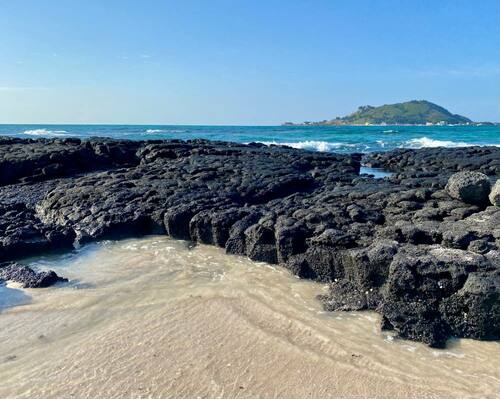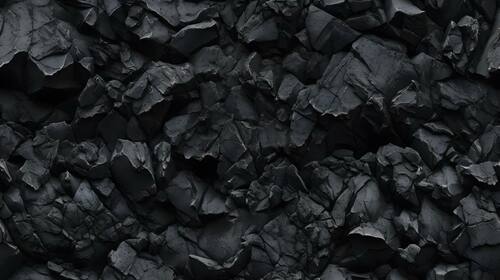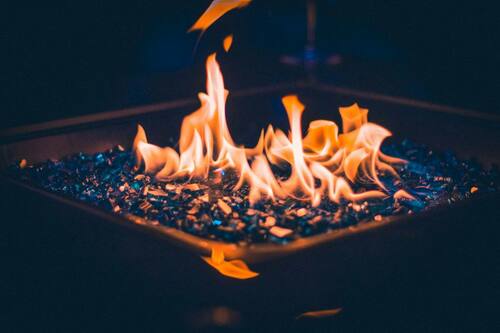Black Lava Rock Landscaping: Beautify Your Outdoor Space
Introduction
At its core, black lava rock is a specific type of decorative rock that is volcanic in origin. It is common in areas of the world that either currently have volcanic activity, or that were once home to it. In the United States, it is regularly found in areas like Utah , Oregon, Texas, and even parts of California.
For many years, people have been using black lava rock in landscaping thanks to its overall premium feel and appearance. When you use something like mulch in a flower bed, it may start out looking high quality, but it will slowly begin to age and fade as the season drags on. Even white lava rock presents issues because it is prone to staining by the elements.
Black lava rock, however, maintains its sophisticated black and gray colors year after year—which is a big part of why people love it. But at the same time, it’s important to acknowledge that not all landscaping projects are created equally. If you want to learn how to use black lava rock the right way, or if you’re eager to learn more about landscaping with lava rock in particular, there are a number of important things to keep in mind.
The Many Benefits of Black Lava Rock

A Formation of Black Lava Rock on a Beach – Photo by Jungjin Moon on Unsplash
- Durability: Even if you were using black lava rock exclusively as a replacement for mulch, many consider it worth the investment for the durability alone. With traditional mulch, you essentially need to replace it every six to twelve months. With black lava rock, you can go years without maintenance in that sense—to the point where many consider it to be permanent.
- Moisture Retention: Thanks to how porous black lava rock is, it’s great for retaining water for your plants and flowers. When using black lava rock with a potted plant, for example, it can store water to be released to the plant as needed.
- Improving Drainage: Along the same lines, black lava rock is also known for being porous, which helps to improve drainage in and around your yard. Unlike with other options, water won’t collect underneath or even between the rocks. This helps prevent the spread of fungus and weeds and generally makes sure your yard is always in great shape.
- Aesthetic Appeal: Black lava rock has a sleek, uniform appeal that many consider to be a step above and beyond traditional mulch. As stated, it can also help prevent weeds from cropping up in unwanted locations—extending the visual appeal of the rock to your entire yard as well.
Installation Tips for Black Lava Rock

A Natural Formation of Black Lava Rock
How you will install black lava rock in and around your yard depends largely on how you plan on using it. For the sake of example, say you were planning on using black lava rock as a replacement for traditional mulch . In that case, you would use largely the same approach.
Smooth out the area where you’re planning on using the black lava rock with a rake or other garden tool. The area you’re working with should have a depth of around two to four inches. This will be essential for the root systems of any plants or flowers you’ll be adding to have the space they need to circulate air and water. You also want to proceed with caution so that you don’t suffocate any plants that are already in the area.
At that point, you can lay down the black lava rock in the desired area until you get the pop of color or great new texture that you were after.
To calculate how much black lava rock you’ll need, you must find out the area of the space in cubic yards. Measure the length, the width, and the depth of the flower bed or other space you’re working with. Remember that the depth will be between two and four inches. Design
Ideas, Maintenance, and More

A Backyard Fire Pit Filled with Lava Rocks – Photo by Tyler Delgado on Unsplash
Going beyond the use of black lava rock as a mulch alternative, there are a number of popular ways in which it is commonly used to beautify various outdoor spaces:- Many people find great success using black lava rock as a type of decorative border. You might create a layer of black lava rock around your garden, for example, to help it stand out from the rest of the landscaping decisions you’ve made in your yard. It can make the border of the garden truly “pop.”
- Black lava rock is also commonly used in or around outdoor fire pits . Thanks to the fact that black lava rock is durable, and because it also retains heat, you can quickly add a fire pit to your outdoor space without running into the same issues you would with traditional mulch or any other ground coverings you might have.
- Planters are another great way to add some flair to your yard with black lava rock. If you have flowers in your planter that themselves are long lasting and known for being low maintenance, black lava rock can be a perfect way to beautify your yard (and an opportunity to “set it and forget it” as well).
In terms of maintenance, you’ll no doubt be pleased to note that you don’t actually have to do anything to keep black lava rock looking its best. By design, it’s incredibly durable, and it doesn’t break down the same way that organic mulch will.
In order to make sure that your black lava rock remains valuable, however, you’ll always want to make sure it is hydrated and moist. Don’t forget that plants will still get their water from the lava rock. You’ll also want to make sure that dirt doesn’t build up on the rock, and you should take care to remove any roots that may be present once your plants and flowers have had some time to grow.
In the end, are black lava rocks the best lava rocks for landscaping? That’s entirely subjective. It will come down to what your vision of the most beautiful yard truly is. Having said that, with benefits like moisture retention, durability, and overall flexibility, it’s easy to see why they’ve become such a popular option for homeowners everywhere over the last decade in particular.

A Beach Blanketed in Black Lava Rocks – Image by Ronile from Pixabay
Frequently Asked Questions
What happens if you still have moss growing on your black lava rock?
As stated, black lava rock is known for being low maintenance—but that doesn’t mean that you won’t run into certain issues if the conditions are right. Case in point: moss . If you still see moss growing in your flower beds or planters, especially after a particularly rainy period, this is caused by a moisture issue. Thankfully, cleaning them is easy—all you need is a straightforward chemical moss treatment.
How do the various types of lava rock for landscaping differ?
While black lava rock is one of the more popular landscaping options of its type available today, it is just one of many. These types of decorative rocks come in a variety of colors, including (but not limited to) red, brown, white, and even rainbow. You can also get them in many different shapes like oval, rectangular, and even round. Which configuration you choose will vary depending on where you’re planning on using your decorative rocks and how they fit in with the larger vision of your property.
Can you use black lava rock with gas grills?
When you think about outdoor spaces, one thing that probably comes to mind is the summer grilling season. Thanks to their ability to hold heat, you CAN use black lava rocks for your gas grills. They radiate heat evenly and will cook meat very well. However, the porous nature of the rocks could lead to some of that aforementioned fungal growth, meaning you would still probably want to investigate alternatives.
If you’d like to get more great green and outdoor design ideas, or if you have any additional landscaping-related questions that you’d like to discuss with someone in a bit more detail, please don’t delay— contact us now, sign up for the official Arborist Now newsletter, and follow us on social media!


